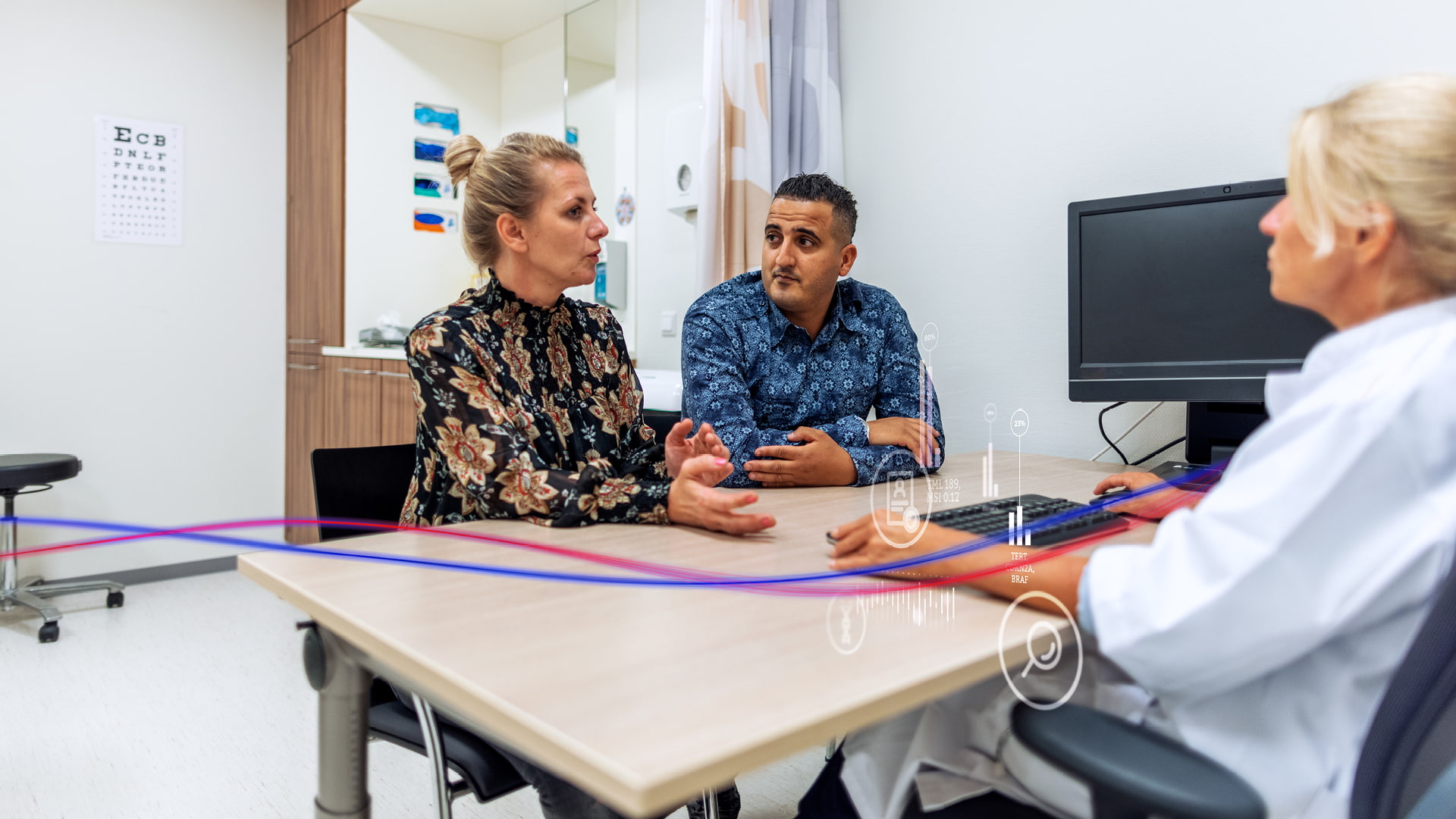
DR-454 The genomic landscapes of MLH1-mutated and/or CTNNB1-mutated colorectal carcinomas
- Algoritmes
- Behandeling op maat
- Betaaltitel
- Biomarker
- cfDNA
- DNA
- Educatie
- Geen onderdeel van een categorie
- GENAYA project
- Hartwig Medical Database
- Hartwig Medical Foundation
- Hergebruik data
- Innovatie
- IT
- Kwaliteit
- Lab proces
- Lerend zorgsysteem
- Medicijn
- Moleculaire diagnostiek
- OncoAct
- Onderzoek
- Participerende ziekenhuizen
- Pipeline
- Preventie
- Primaire Tumor Onbekend
- Uitbehandeld
- Verhalen patiënten
- Werken in de cloud
- Wetenschappelijke publicaties
- Whole genome sequencing
- Zeldzame kankers
DR-454 The genomic landscapes of MLH1-mutated and/or CTNNB1-mutated colorectal carcinomas
Colorectal cancer (CRC) is a heterogeneous disease comprising subtypes with distinct clinical and/or molecular characteristics. Roughly, two major categories of …
DR-465 Investigating the role of tandem repeat expansions in cancer risk
This project seeks to use genome sequencing data from tumor samples to look for a specific type of genetic mutation …
DR-456 Developing a Foundation Model for Cancer Genomes
Mutations in the DNA of cells are the base for cancer formation. We plan to develop an artificial intelligence tool …
DR-453 Mapping neotelomeres and chromosomal arm fusions in primary and metastatic cancers
Cancer cells often face DNA damage, which must be repaired to ensure their survival. In previous research, we discovered that …
DR-461 Identifying biomarkers that predict outcomes in BRAFV600E mutant colorectal cancer
This project aims to understand how genetic alteration in an important cancer signalling pathway can impact treatment response and prognosis …
DR-469 Large scale characterization of the Pancreatic Ductal Adenocarcinoma microenvironment and its relation to prognosis and treatment benefit
We aim to characterize the tumor microenvironment (TME) of Pancreatic Ductal Adenocarcinoma (PDAC) using four big primary cohorts with bulk …
DR-471 Whole Genome CRISPR Screening Identifies Novel Regulators of Mismatch Repair in Lynch-like Syndrome
This project aims to uncover novel genetic regulators of mismatch repair (MMR) that may explain the molecular basis of Lynch-like …
DR-472 Identification of CN-LOH in CRC
Patients with colorectal cancer (CRC) often have major alterations in the genomic information. These mutations are traditionally assessed to occur …
DR-468 Investigating effects of cancer treatment on metastatic risk and survivorship
Patients diagnosed with aggressive breast cancers, such as triple-negative breast cancer, often require intensive chemotherapy treatments. While these treatments are …
DR-477 AURORA: Forecasting Treatment Resistance and Evolutionary Trajectories with Multi-Modal Data
AURORA discovers novel biomarkers that predict treatment resistance and guide therapy selection in metastatic cancers. Leveraging Hartwig’s pan-cancer whole-genome sequencing …
DR-434 NECTIN4 Prevalence and Prognostic Value in Metastatic Breast Cancer
NECTIN4 is a protein found on breast cancer cells, and new drugs can target it to kill the cancer. When …
DR-464 Stop-loss in cancer
This project investigates rare genetic changes called stop-loss mutations and their role in cancer. Using mutations called from genome and …

Kanker ontstaat door mutaties in het DNA. Er zijn steeds meer geneesmiddelen die werkzaam zijn bij specifieke fouten in het DNA van de tumor van een individuele patiënt. Een medicijn dat niet past als een sleutel in het slot werkt niet, terwijl je wel het risico van de bijwerkingen hebt.